|
7 Rules of Investing. In times of uncertainty, it helps to go back to the basics. Rather than hope and pray that things go well – that our wealth is growing but also protected from losses – it’s a better idea to do a quick checkup to make sure that we are adhering to time-proven wealth strategies. Even if someone else is tasked with managing our money, it will be our gain (woohoo!) or loss (ouch), if the plan isn’t properly protected. Most managed plans do whatever the market does, while a properly diversified plan earns gains in bull markets and protects us from losses in bear markets and recessions. That’s why it’s important for us to be the boss of our money, and seek out an unbiased 2nd opinion on our current plan from someone who understands Modern Portfolio Theory. (All broker-salesmen say they know this, but few actually employ it.) Below are two examples of people who had faith that their financial advisor was protecting and diversifying them, and telling them the truth about that, when in fact they had a great deal to lose. E had suffered a lot of losses during the Great Recession, both in stocks and in real estate. She told her financial advisor that she wanted a conservative allocation. Her broker-salesman put her into dividend-paying stocks. E was actually invested 87% in stocks, which is appropriate if you’re about 13 years old. E was close to retirement. In a downturn, she was vulnerable to losing half or more of her wealth. F wanted to get income while also protecting his principal. His fiduciary financial advisor told him he was earning 5-7% income on his conservative investments. Yet his own statement reflected that he was really only earning 1.8%, when you factor in how much he had lost on the risky bonds that his broker purchased. Should he just hold the bonds to term, even though he had already lost tens of thousands in principal? Many of the bonds were very long-term, in addition to having low credit quality. As just one example, he had a junk bond that wouldn’t pay him back until 2074 (decades after he has died). In the meantime, it was losing a lot of money, with the potential of more principal losses on the horizon. So, what are the basics of investing? Here are some of the things we will cover in this blog. 1. Always keep a percentage equal to our age safe. 2. Overweight safe if we are nervous or would like a more conservative plan. 3. Diversify. 4. Know what is safe in a world where bonds are losing more than stocks, and banks are failing. 5. Rebalance regularly. 6. When we wait for the headlines, we’re late. 7. Stick to our plan. And here is more information on each point. 1. Always keep a percentage equal to our age safe. As we get closer to retirement, we can’t afford to lose money. Buy and hold is built on the idea that over time we can make up any losses. However, using bull markets to earn back losses is really just riding a Wall Street rollercoaster. Whether we are young or old, losing a great deal of our wealth will lower our FICO score. It might make it difficult for us to pay our bills, or, in the worst case scenario, we might lose our home. Protecting our principal from losses on an age-appropriate basis is an easy way to ensure a that our financial home is protected from any market downturn. The Dow Jones Industrial Average dropped -55% in the Great Recession (down to 6549) and took almost seven years to return to its Oct. 2007 highs. The NASDAQ Composite Index plunged -78% in the Dot Com Recession and took 15 years to crawl back to its March 2000 level. 2. Overweight safe if we are nervous, or would like a more conservative plan. Those people who overweighted safe (as our sample pie charts and email notifications prompted them to do) earned gains in the Dot Com and the Great Recessions, when most people lost more than half of their wealth. The strategy also outperformed the bull markets in between. When we are worried about the economy, or are interested in a more conservative allocation, just overweight a little safe – act a little older than we are. Stocks really are the best performers over time, as you can see it in the chart below. However, equities and equity funds can also be the most volatile, and typically suffer the greatest losses during bear markets. Most people don’t buy low because they can’t. They’ve lost too much money. 3. Diversify You might notice from the chart above that small companies perform better than large companies. As you can see in the chart below, the NASDAQ Composite Index (with more growth stocks) far outperformed the Dow Jones Industrial Average (with more value-oriented holdings) over the five-year period. We can increase performance by making sure that we have value and growth, small, mid, and large caps, and four hot industries. Check out the sample pie chart below. If you would like to personalize your own sample pie chart, just click to access our free web app, or email [email protected] with FREE WEB APP in the subject line. 4. Know what is safe in a world where bonds are losing more than stocks and banks are failing. The bank failures of March seem far away, however, all financial services companies remain at risk, which is why we continue to underweight banks and the financial industry in our sample pie charts. A lot of that has to do with the industry’s exposure to long-term bonds in vulnerable high-debt industries, with the greatest concern being commercial real estate. There are ways to earn a reasonable return that is pretty safe. It’s tricky, however. In short, we want to keep the credit worthiness high, and the duration short. We’re going to be hosting a What’s Safe? Bond Master Class this Saturday, where we will be discussing FDIC, SIPC, MMFs, CDs, bonds, annuities and more. If you are interested in joining us, email [email protected] with Bond Master Class in the subject line. 5. Rebalance regularly. Regular rebalancing is an important part of our wealth plan. Obsessively watching our portfolio is not a good idea. Neither is trying to time the markets. Once, twice, or three times a year rebalancing ensures that we are capturing gains and increasing our wealth, while protecting our investments from downturns. It is also a Buy Low, Sell High plan on autopilot. 6. When we wait for the headlines, we’re late. One of the reasons why market timing doesn’t work is that most of us are waiting for the headlines as our prompt on what to do. However, as you can see in the chart below, the recession doesn’t get announced until close to the stock market bottom. So, if we wait for the recession announcement, we’ll actually be selling low. Conversely, when everyone is excited about all the gains in the market, we’re often very close to the market top. That is why regular rebalancing and proper diversification, while keeping the right amount safe from principal losses, works better than market timing, Buy & Hold or headlines. 7. Stick to our plan. There is a lot of financial noise swirling around us all of the time. Marketing whizzes cloak themselves as financial geniuses, and then punch our emotions to a 10 in order to sell us the only thing that’s going to work when everything goes to hell in a handbasket (a product they are profiting from promoting, which can sometimes be a Pump and Dump Scheme). If we want to gamble on a meme or social media video, then consider doing so in one of our hot slices, or as an education allotment in our budget. The crypto winter, the cannabis crash and the gold/silver doldrums have taught many of us to make sure that we’re not gambling or betting the farm on any one get-rich-quick scheme. Bottom Line It’s important for us to take ownership of our wealth plan, and be the boss of our money. Learning the basics of life math can help us build a solid financial house that can protect our wealth from the volatility of stocks and the vulnerability of bonds, while also allowing us to keep compounding gains. There are, of course, a few tricks to the trade. For a complete money makeover, consider joining us at our New Year, New You Financial Freedom Retreat January 13-15th, 2024 online. Register by Halloween and you will receive the lowest price and a complimentary 50-minute private prosperity coaching session (value: $400). Email [email protected] to learn more and register now. Chances are we’re still a little complacent, even if we are also a little worried. That’s because the markets have recovered 12.8% of last year’s -19.6% losses. Never confuse a bull market with wisdom! Wisdom and time-proven 21st Century strategies are the cure. Many people, including educated men and women, often get into trouble when they neglect to follow simple and fundamental rules of the type provided [by Natalie]. This is why I recommend them with enthusiasm." Professor Gary S. Becker. Dr. Becker won the 1992 Nobel Prize in economics for his theories on human capital Join us at our Jan. 13-15, 2024 New Year, New You Financial Freedom Retreat. Learn nest egg strategies, how to get hot and diversified, and what's safe in a Debt World. You'll even discover how to save thousands annually with smarter big-ticket choices. Yes, it's a complete money makeover. Email [email protected] to register. Learn the 15+ things you'll master and read testimonials in the flyer (link below) and on the home page at NataliePace.com. Register by Halloween (10.31.2023) to receive the best price and a complimentary 50-minute private prosperity coaching session (value $400).  Join us for our Online New Year, New You Financial Freedom Retreat. Jan. 13-15, 2024. Email [email protected] or call 310-430-2397 to learn more. Register by Halloween to receive the best price and a complimentary 50-minute private prosperity coaching session (value $400). Click for testimonials, pricing, hours & details.  Join us for our Restormel Royal Immersive Adventure Retreat. March 8-15, 2024. Email [email protected] to learn more. Register with friends and family to receive the best price. Click for testimonials, pricing, hours & details. There is very limited availability, and you must register early to ensure that you get the exact room you want. This retreat includes an all-access pass to all of our online training for a full year for two! 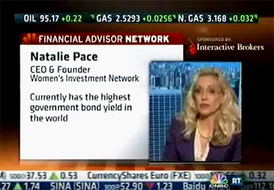 Natalie Wynne Pace is an Advocate for Sustainability Financial Literacy & Women's Empowerment. Natalie is the bestselling author of The Power of 8 Billion: It's Up to Us and is the co-creator of the Earth Gratitude Project. She has been ranked as a No. 1 stock picker, above over 835 A-list pundits, by an independent tracking agency (TipsTraders). Her book The ABCs of Money remained at or near the #1 Investing Basics e-book on Amazon for over 3 years (in its vertical), with over 120,000 downloads and a mean 5-star ranking. The 5th edition of The ABCs of Money and the 2nd edition of Put Your Money Where Your Heart Is were released in 2021. Follow her on Instagram. Natalie Pace's easy as a pie chart nest egg strategies earned gains in the last two recessions and have outperformed the bull markets in between. That is why her Investor Educational Retreats, books and private coaching are enthusiastically recommended by Nobel Prize winning economist Gary S. Becker, TD AMERITRADE chairman Joe Moglia, Kay Koplovitz and many Main Street investors who have transformed their lives using her Thrive Budget and investing strategies. Click to view a video testimonial from Nilo Bolden. Check out Natalie Pace's Apple Podcast. Watch videoconferences and webinars on Youtube. Other Blogs of Interest Air B N Bust? Santa Rally 2023 or Time to Get Defensive? Barbie. Oppenheimer. Strikes. Streaming Wars. Netflix. Monero: A Token of Trust? 13 Lifestyle Choices to Reduce Waste, Pollution & CO2 & Save a Boatload of Dough. China Bans Apple 11-Point Green Checklist for Schools. Artificial Intelligence and Nvidia's Blockbuster Earnings Report Biotech in a Post-Pandemic World Summer Sweepstakes 10 Wealth Secrets of Billionaires and Royals. What Happened to Cannabis? Bank of America has $100 Billion in Bond Losses (on Paper) The USA AAA Credit Rating is on a Negative Watch. Lithium. Essential to EV Life. I'm Just Not Good at Investing. Investors Ask Natalie. Should I Buy an S&P500 Index Fund? Investors Ask Natalie. Bonds Lost More than Stocks in 2022. Tesla's Model Y is the Bestselling Car in the World. 2023 Company of the Year Sell in May and Go Away? Do Cybersecurity Risks Create Investor Opportunities? Writers Strike, While Streaming CEOs Rake In Hundreds of Millions Annually. I Lost $100,000. Investors Ask Natalie. Artificial Intelligence Report. Micron Banned in China. Intel Slashes Dividend. Buffett Loses $23 Billion. Branson's Virgin Orbit Declares Bankruptcy. Insurance Company Risks. Schwab Loses $41 Billion in Cash Deposits. The Debt Ceiling Crisis. What's at Stake? Fiat. Crypto. Gold. BRICS. Real Estate. Alternative Investments. BRICS Currency. Will the Dollar Become Extinct? Empty Office Buildings & Malls. Frozen Housing Market. The Online Global Earth Gratitude Celebration 7 Green Life Hacks The Debt Ceiling. Will the U.S. Stop Paying Bills in June? Fossil Fuels Touch Every Part of Our Lives Are There Any Safe, Green Banks? 8 Fires the Federal Reserve Board Needs to Put Out. 7 Ways to Stash Your Cash Now. Lessons from the Silicon Valley Bank Failure. The 2 Best Solar Stocks Which Countries Offer the Highest Yield for the Lowest Risk? Rebalance By the End of March Solar, EVs, Housing, HSAs -- the Highest-Yield in 2023? Are You Anxious or Depressed over Money? Why We Are Underweighting Banks and the Financial Industry. You Stream all the Channels. Should You Invest, Too? NASDAQ is Still Down -26%. Are Meta & Snap a Buy? 2023 Bond Strategy Emotions are Not Your Friend in Investing Investor IQ Test Investor IQ Test Answers Bonds Lost -26%, Silver Held Strong. 2023 Crystal Ball for Stocks, Bonds, Real Estate, Cannabis, Gold, Silver. Tilray: The Constellation Brands of Cannabis New Year, New Healthier You Tesla's $644 Billion Fall From Mars Silver's Quiet Rally. Save Thousands Annually With Smarter Energy Choices Is Your FDIC-Insured Cash Really Safe? Money Market Funds, FDIC, SIPC: Are Any of Them Safe? My 24-Year-Old is Itching to Buy a Condo. Should I Help Him? The 12-Step Guide to Successful Investing. Gardeners Creating Sanctuary & Solutions in Food Deserts. The Bank Bail-in Plan on Your Dime. Rebalancing Your Nest Egg IQ Test. Answers to the Rebalancing Your Nest Egg IQ Test. Important Disclaimers Please note: Natalie Pace does not act or operate like a broker. She reports on financial news, and is one of the most trusted sources of financial literacy, education and forensic analysis in the world. Natalie Pace educates and informs individual investors to give investors a competitive edge in their personal decision-making. Any publicly traded companies or funds mentioned by Natalie Pace are not intended to be buy or sell recommendations. ALWAYS do your research and consult an experienced, reputable financial professional before buying or selling any security, and consider your long-term goals and strategies. Investors should NOT be all in on any asset class or individual stocks. Your retirement plan should reflect a diversified strategy, which has been designed with the assistance of a financial professional who is familiar with your goals, risk tolerance, tax needs and more. The "trading" portion of your portfolio should be a very small part of your investment strategy, and the amount of money you invest into individual companies should never be greater than your experience, wisdom, knowledge and patience. Information has been obtained from sources believed to be reliable. However, NataliePace.com does not warrant its completeness or accuracy. Opinions constitute our judgment as of the date of this publication and are subject to change without notice. This material is not intended as an offer or solicitation for the purchase or sale of any financial instrument. Securities, financial instruments or strategies mentioned herein may not be suitable for all investors. Comments are closed.
|
AuthorNatalie Pace is the co-creator of the Earth Gratitude Project and the author of The Power of 8 Billion: It's Up to Us, The ABCs of Money, The ABCs of Money for College, The Gratitude Game and Put Your Money Where Your Heart Is. She is a repeat guest & speaker on national news shows and stages. She has been ranked the No. 1 stock picker, above over 830 A-list pundits, by an independent tracking agency, and has been saving homes and nest eggs since 1999. Archives
July 2024
Categories |






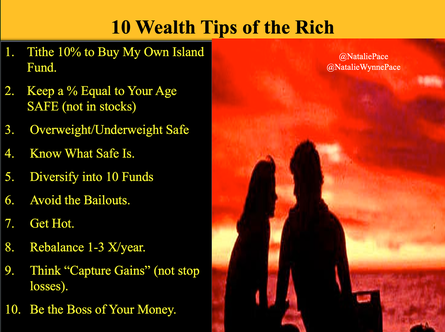
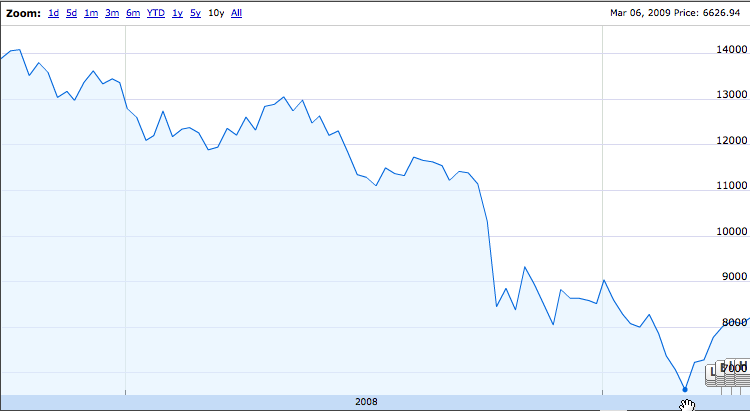
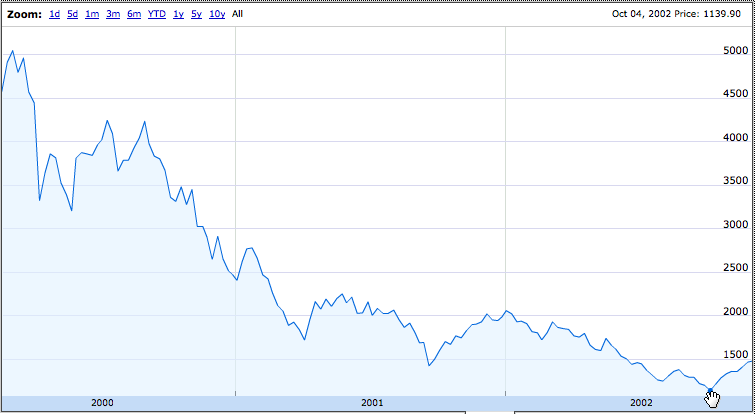
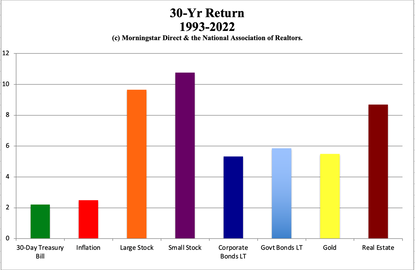
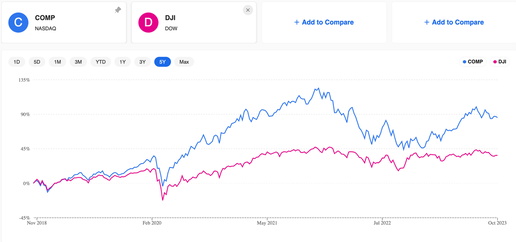
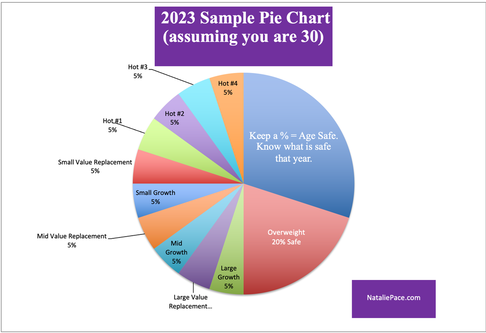
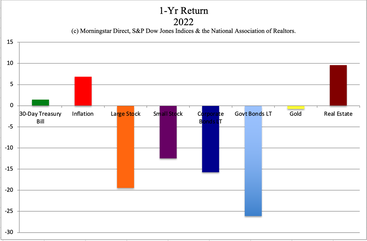
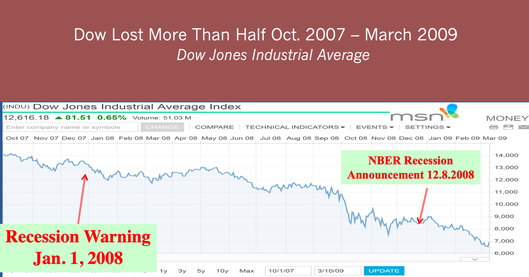
 RSS Feed
RSS Feed